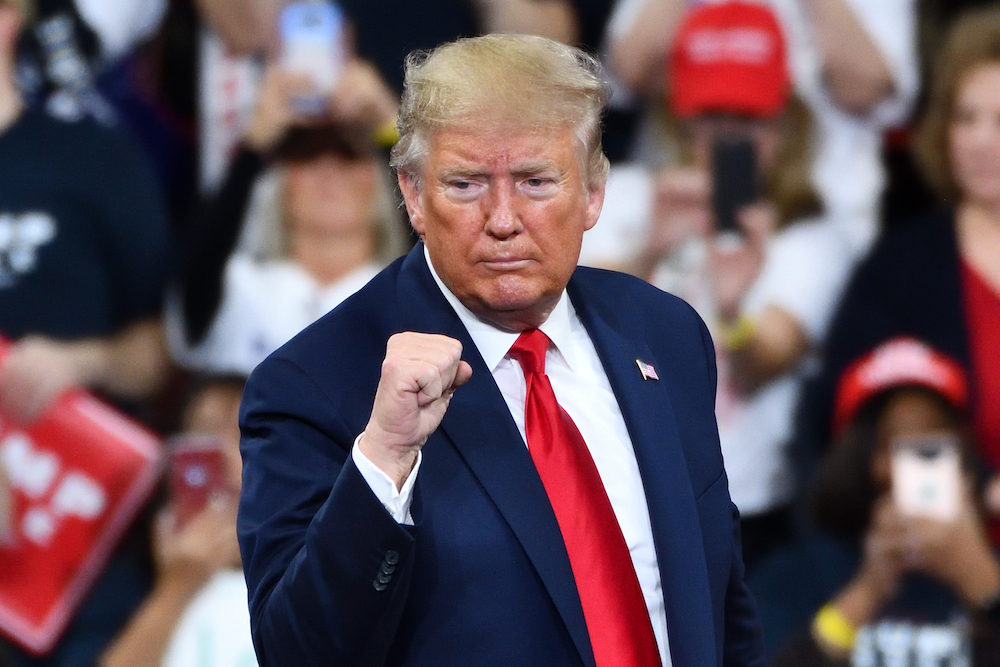Politics
BREAKING: DC Judge PAUSES Trump Trial, CRUSHES Jack Smith’s Hopes

A federal judge has temporarily stopped the federal election interference case against former President Donald Trump. The pause in legal proceedings arrives as Trump advances his appeal, citing presidential immunity. As a result, all impending deadlines and court dates are suspended, casting great uncertainty on the trial’s previously scheduled commencement date of March 4, 2024.
The decision represents a devastating blow to Special Counsel Jack Smith, who aims to see Trump tried and convicted before the November 2024 election.
On December 4, the court initially rejected Trump’s motion to dismiss the case, grounded in arguments of presidential immunity and constitutional grounds. Trump then challenged this decision, prompting Judge Tanya Chutkan to authorize a partial stay of the proceedings pending the appeal’s resolution.
The District Court has agreed with Trump’s appeal effectively suspending any proceedings that advance the case towards trial or increase litigation burdens for the defendant.
…It is still possible that the trial in March could occur depending on how the Supreme Court acts on the request for an expedited review by Smith.
— Jonathan Turley (@JonathanTurley) December 13, 2023
However, the court delineated two boundaries to the suspension; the postponed deadlines and procedures are held in abeyance rather than being permanently vacated, and the suspension does not strip the court of authority to enforce existing measures protecting the integrity of the proceedings.
Chutkan, appointed by President Barrack Obama, ruled that the pause does not affect Trump’s release conditions, the gag order, or the case’s protective order. This follows her earlier refusal of Trump’s request to dismiss the case based on presidential immunity, leading to Trump’s subsequent appeal to the D.C. Circuit Court of Appeals.
BREAKING: Judge Chutkan agrees that she no longer has jurisdiction over Trump case while his immunity appeal is pending. https://t.co/zooNwQcKXo pic.twitter.com/FyAxNF2V5i
— Kyle Cheney (@kyledcheney) December 13, 2023
These measures encompass conditions of the defendant’s release, protective orders for discovery materials, restrictions on public statements outside court, and protective jury processes.
The decision to pause the trial reflects the intricate legal terrain surrounding presidential immunity, with profound implications for the separation of powers principle. Although not a conclusive resolution, it signifies a pivotal juncture in the ongoing legal conflict.
“If jurisdiction is returned to this court, it will—consistent with its duty to ensure both a speedy trial and fairness for all parties—consider at that time whether to retain or continue the dates of any still-future deadlines and proceedings, including the trial scheduled for March 4, 2024,” wrote a federal judge.
The indictment accuses the former President of systematic efforts to overturn the 2020 presidential election results and obstruct the peaceful transfer of power. However, the legitimacy of these charges has been a subject of intense debate. Critics have argued that at least two of the counts against Trump are legally questionable, undermining the entire case’s foundation.
Special Counsel Smith, who is spearheading the prosecution, had petitioned both the U.S. Court of Appeals for the District of Columbia Circuit and the Supreme Court to expedite the appeal’s hearing. In response, the Supreme Court requested Trump’s legal team to present their arguments by December 20, signaling a readiness to address the matter promptly.
Smith wanted to skip the appeals court and asked the Supreme Court on Monday to handle the case directly. The move aimed to ensure the trial, once scheduled for March 4, happened on time.
The pause on the trial is seen as a substantial triumph for Trump, who is the front-runner for 2024.

